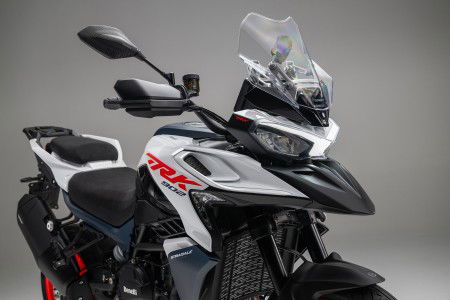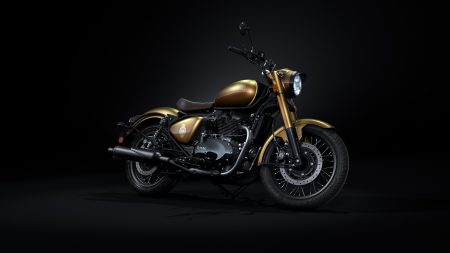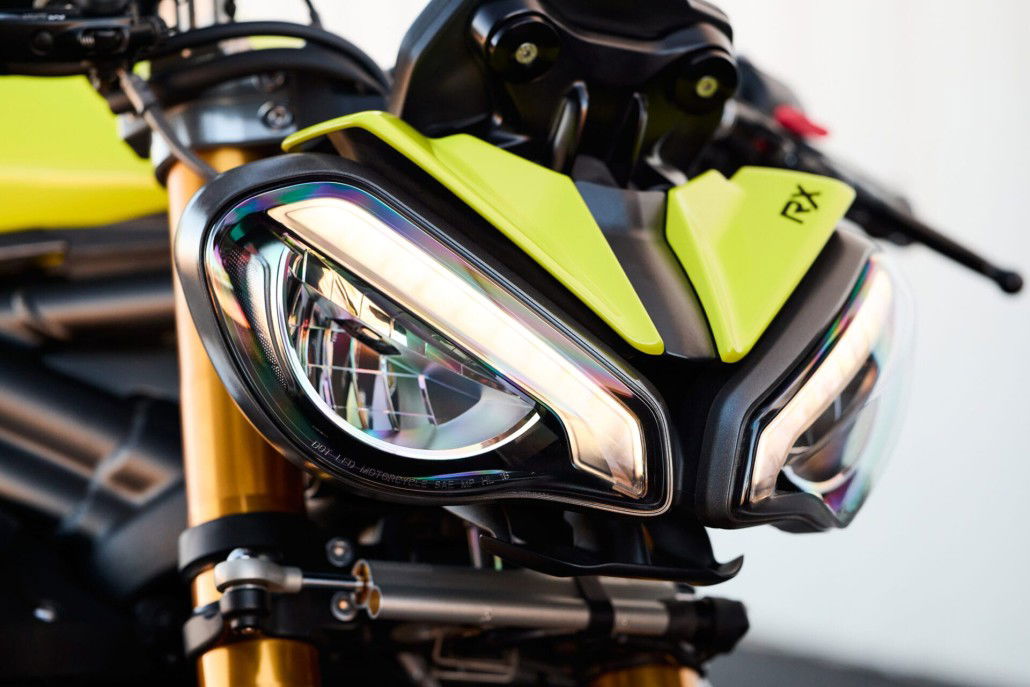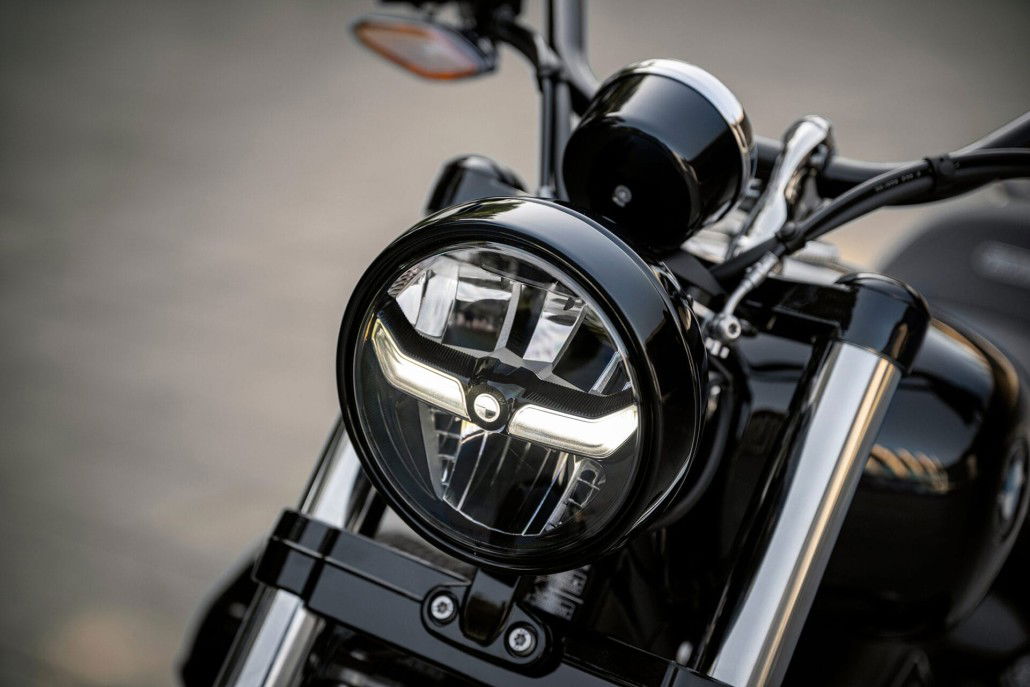Technical data at a glance
The Himalayan 452 comes with a water-cooled engine that offers 451.65 cc displacement and 40 hp at 8,000 rpm. The engine uses modern design approaches such as electronic fuel injection, dual overhead camshafts and four valves per cylinder. The vehicle measures 2,245 mm in length, has a height of 1,316 mm to 1,415 mm and a width between 852 mm and 900 mm, depending on the equipment. The wheelbase is 1,510 mm.
Construction and design
What’s striking about this model is the substantial suspension travel of the USD fork and direct-attached strut, each of which could exceed 200 mm, implying impressive off-road capability. With 21-inch front, 17-inch rear and wire-spoke wheels, the Himalayan 452 puts forth a rugged profile. The design also includes a massive fuel tank, protective bars, a two-piece seat and integrated lighting on the fender.
Feature set
In terms of features, the Royal Enfield Himalayan 452 is forward-thinking, with LED turn signals and lights, as well as a circular TFT display that is said to offer turn-by-turn navigation and Bluetooth connectivity. These are features that should appeal to touring riders in particular, with the inclusion of luggage mounting options and a notable fuel capacity also relevant for touring.
Expectations and official launch
Although some specifications and pricing have yet to be officially released, the information known so far offers a detailed look at what motorcycle enthusiasts and fans of the brand can expect. With the official unveiling of the Himalayan 452 on November 7, 2023 at EICMA, it is expected that all the details will be revealed.
The release of the Royal Enfield Himalayan 452 is certainly eagerly awaited, and it remains to be seen what the reactions of experts and enthusiasts will be after the official launch and the first test rides.
[amazon bestseller=”Royal Enfield” items=”3″]








